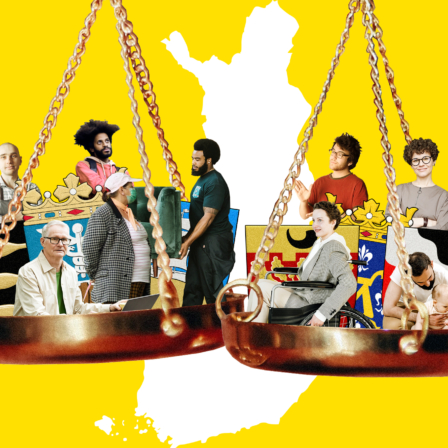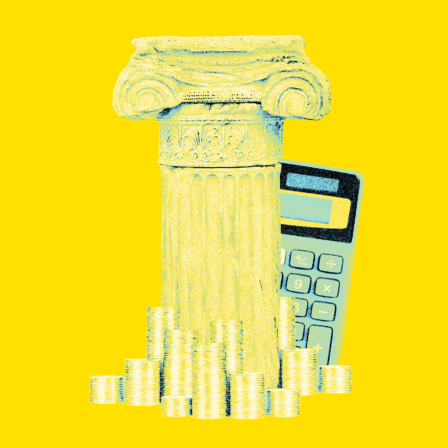Democracy is not a perfect system and power politics will often produce nonsensical compromises. For example, dull and unexciting Brussels was chosen as the EU capital a long time ago, because Paris and Bonn were outc of the question. As a concession, France was given the European Parliament headquarters in Strasbourg. That’s why MEPs go there once a month for their plenary session.
The Strasbourg shuttle makes no sense either in climate or financial terms. But this absurdity was intended to stop an even greater one, a great European war, from happening again. When asked by a journalist about the cost of the shuttle, Czech President Václav Havel’s counter-question summed things up rather well: “How much does one minute of peace cost?”
We should consider the price tag of democracy, because autocrats do not hesitate to spend their resources to weaken democracies.
According to international democracy reports, authoritarianism is spreading and strengthening its grip at such pace that Havel’s question seems once again on point. We should consider the price tag of democracy, because autocrats do not hesitate to spend their resources to weaken democracies.
Some estimate that the Kremlin spends up to EUR 1.5 billion a year for spreading international disinformation and propaganda. According to the British newspaper The Guardian, China even outspends Russia.
According to Philip N. Howard, a researcher specialised in digital propaganda, manipulation especially on social media, has grown into a global billion-dollar business. An increasing number of interests, from state actors to political parties, are spending money on psychological operations and other manipulation of the public opinion on social media. The best methods have become export products. According to information published by the US-based Freedom House in 2019, online manipulation had been detected in over 20 countries – and the increase is expected to continue.
How to harness the power of technology and data to reform democracy?
As the arms race intensifies, it is crucial to consider how democracies will cope in this increasingly global competition. One way forward is to invest in the development and deployment of democracy technologies. They are needed both to defend against threats and to make democracy more attractive.
Democracy technology (also known as DemTech or Civic Tech) is an umbrella term for a range of services that enable people to directly participate in decision-making processes, for instance by voting, submitting initiatives and participating in debates. Unlike social media, these technologies have also been designed precisely for this purpose.
Democracy technologies are evolving at a blistering pace and they are also increasingly provided by for-profit companies. According to a recent report, the market for various participatory platforms and online voting apps is expected to grow by several hundred million euros over the next five years. The figures are only indicative, but it is easy to forecast growth as various forms of direct participation are spreading rapidly around Europe. In France alone, participatory budgeting is being carried out in more than 150 municipalities.
There is an ever-increasing demand for these services. As many as four out five Europeans would like to be more involved in decision-making more than they currently do if it were only easier.
The world’s biggest platform companies have shown how much power technology and data can have over how we interact with each other, how information circulates in our society and how we express our emotions on various topics.
For now, businesses that achieve the highest profits and greatest impact in leveraging data mostly focus on capturing our attention, advertising and different ways of targeting it. This is exemplified by the world’s main platform giants’ dominant market positions and billion-euro profits.
Social media, and the internet in general, has not turned out to ‘naturally’ be the democratic force it was thought to be. As a result, using technology for developing democracy and our societies has fallen by the wayside.
Europe is well positioned to become a pioneer and trailblazer in democracy technology.
Europe is well positioned to become a pioneer and trailblazer in democracy technology. The GDPR and other technology and data regulations provide a solid foundation for building ethical services that ensure transparency and privacy. Moreover, our continent remains the most democratic in the world.
Leadership will not be achieved without investment. What’s needed now is for decision-makers to boldly rethink their power from a new perspective, to make room for experimentation and ensure sufficient resources to exploit new technologies. As the state of democracy continues to decline globally, securing sufficient resources for reforming democracy and maintaining its prerequisites should be seen more clearly as an investment in the future. Ideally, that investment could pay dividends economically in the form of new growth companies, innovations and stable investment-attractive societies.
Right now, startups and other companies need the social acumen to recognise a growing market and the chance to not only create business but also reform and defend democracy in the process.
Sitra’s Digital Power and Democracy project is a partner of the MyData Global event from 31 May–1 June 2023. The main theme of the event is digital power – the impact that digitalisation has on social power relations, individual self-determination and democracy. Find out more about our event programme here.
















Recommended
Have some more.